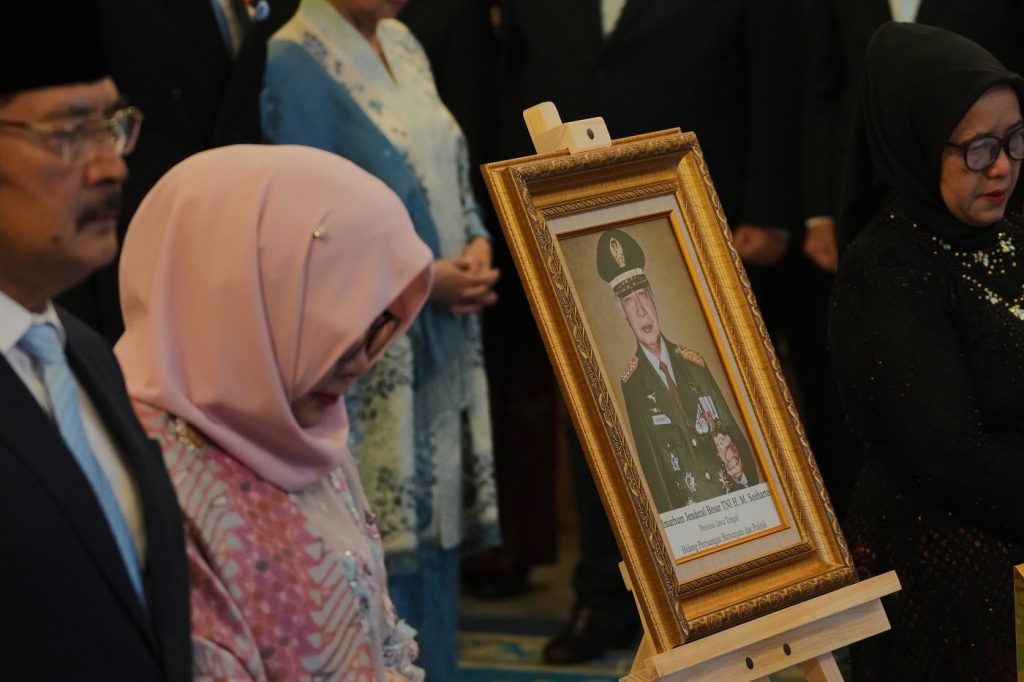On November 10, 2025, Indonesia declared former dictator Suharto a national hero, sparking outrage among human rights organizations who view the move as an attempt to obscure the extensive human rights abuses and corruption that characterized his 32-year rule. Suharto, who was a crucial ally of the United States during the Cold War, oversaw an authoritarian regime during which estimates suggest that up to a million political opponents were killed before his ousting amid widespread protests in 1998.
The announcement was made during a televised ceremony at the presidential palace in Jakarta, where President Prabowo Subianto recognized Suharto as one of ten individuals deserving of this honor on National Hero Day. Fadli Zon, the Minister of Culture, praised Suharto’s role in Indonesia’s struggle for independence from Dutch colonial rule and credited him with tackling poverty and inflation while defeating a Communist insurgency. Zon dismissed allegations of corruption and significant human rights violations against Suharto as unsubstantiated.
President Prabowo Subianto, who has historical ties to Suharto and married his daughter, Siti Hediati Hariyadi, from 1983 to 1998, did not comment following the ceremony. He has faced scrutiny for his past, having risen through the ranks of a military unit known for human rights abuses, and was banned from traveling to the U.S. for years due to these allegations.
Among the other figures honored were former President Abdurrahman Wahid, who revoked many of Suharto's repressive laws, and Marsinah, a labor activist who was murdered during Suharto's regime. Marsinah’s tragic death highlights the brutality of the dictatorship, which saw her killed in 1993 following a confrontation with military officials.
Suharto's regime is characterized by an oppressive governance style, with a heavy military presence in villages across Indonesia. The culmination of discontent, particularly during the Asian financial crisis of 1997-1998, ultimately led to Suharto’s resignation. His leadership is marked by the violence of the mid-1960s when hundreds of thousands of alleged communists were executed as he took power. Additionally, his regime was responsible for the deaths, disappearances, or starvation of approximately 300,000 people in regions such as East Timor, Aceh, and Papua, according to human rights organizations and United Nations reports.
The declaration of Suharto as a national hero has ignited a national debate, particularly among survivors of state-sponsored violence and those who endured suffering under his rule. Bedjo Untung, the chairman of the 1965 Murder Victim’s Research Foundation, expressed his shock and anger at the government’s decision, emphasizing the continued hardships faced by those affected by Suharto’s regime. He recounted his personal experience of torture during imprisonment and the lingering impact it has had on his family’s life.
Suharto had previously been nominated for the national hero designation several times since 2010, but prior Indonesian administrations had rejected such considerations due to public outcry and debate over his legacy. Prasetyo Hadi, the Minister of State Secretary, noted that this year’s honorees were selected after extensive discussions involving parliamentary recommendations and input from various societal groups, underscoring the government’s aim to honor those they deem significantly contributory to the nation.
Jaleswari Pramodhawardani, a senior policy analyst at Laboratorium Indonesia 2045, criticized the awarding of the title to Suharto as a challenge to the nation’s collective memory and its commitment to justice for victims of state violence. She argued that labeling Suharto as a hero serves to effectively pardon historical abuses and hampers the pursuit of justice for countless individuals affected by his regime’s brutality.











